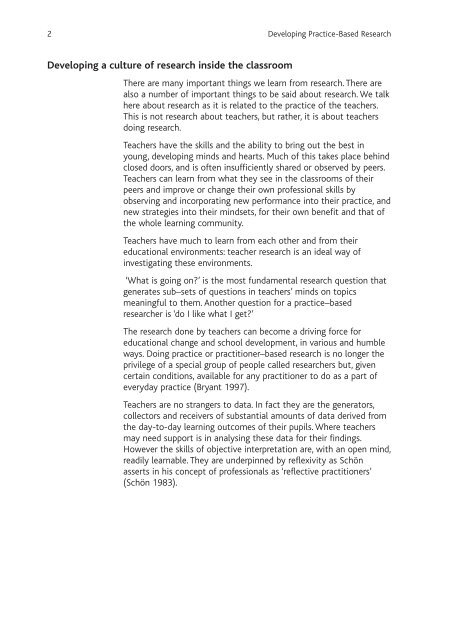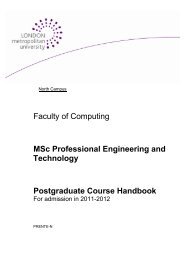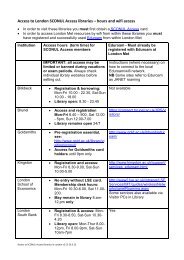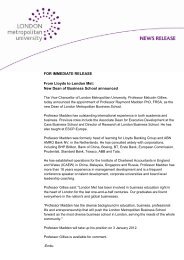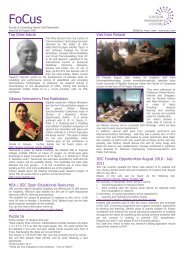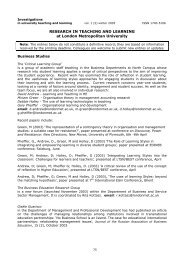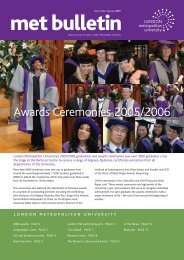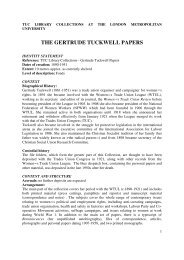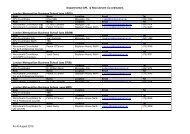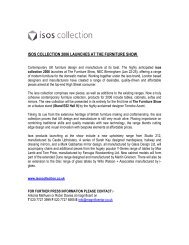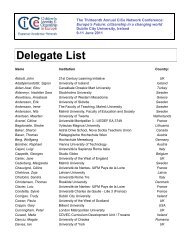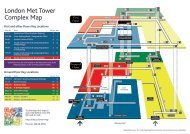Developing practice-based research with persona dolls for
Developing practice-based research with persona dolls for
Developing practice-based research with persona dolls for
Create successful ePaper yourself
Turn your PDF publications into a flip-book with our unique Google optimized e-Paper software.
2<br />
<strong>Developing</strong> a culture of <strong>research</strong> inside the classroom<br />
<strong>Developing</strong> Practice-Based Research<br />
There are many important things we learn from <strong>research</strong>. There are<br />
also a number of important things to be said about <strong>research</strong>. We talk<br />
here about <strong>research</strong> as it is related to the <strong>practice</strong> of the teachers.<br />
This is not <strong>research</strong> about teachers, but rather, it is about teachers<br />
doing <strong>research</strong>.<br />
Teachers have the skills and the ability to bring out the best in<br />
young, developing minds and hearts. Much of this takes place behind<br />
closed doors, and is often insufficiently shared or observed by peers.<br />
Teachers can learn from what they see in the classrooms of their<br />
peers and improve or change their own professional skills by<br />
observing and incorporating new per<strong>for</strong>mance into their <strong>practice</strong>, and<br />
new strategies into their mindsets, <strong>for</strong> their own benefit and that of<br />
the whole learning community.<br />
Teachers have much to learn from each other and from their<br />
educational environments: teacher <strong>research</strong> is an ideal way of<br />
investigating these environments.<br />
‘What is going on?’ is the most fundamental <strong>research</strong> question that<br />
generates sub–sets of questions in teachers’ minds on topics<br />
meaningful to them. Another question <strong>for</strong> a <strong>practice</strong>–<strong>based</strong><br />
<strong>research</strong>er is ‘do I like what I get?’<br />
The <strong>research</strong> done by teachers can become a driving <strong>for</strong>ce <strong>for</strong><br />
educational change and school development, in various and humble<br />
ways. Doing <strong>practice</strong> or practitioner–<strong>based</strong> <strong>research</strong> is no longer the<br />
privilege of a special group of people called <strong>research</strong>ers but, given<br />
certain conditions, available <strong>for</strong> any practitioner to do as a part of<br />
everyday <strong>practice</strong> (Bryant 1997).<br />
Teachers are no strangers to data. In fact they are the generators,<br />
collectors and receivers of substantial amounts of data derived from<br />
the day-to-day learning outcomes of their pupils. Where teachers<br />
may need support is in analysing these data <strong>for</strong> their findings.<br />
However the skills of objective interpretation are, <strong>with</strong> an open mind,<br />
readily learnable. They are underpinned by reflexivity as Schön<br />
asserts in his concept of professionals as ‘reflective practitioners’<br />
(Schön 1983).


